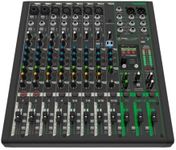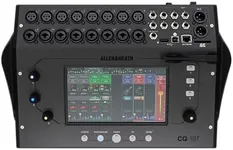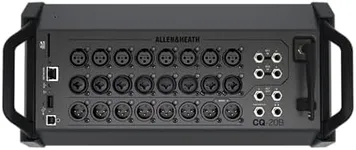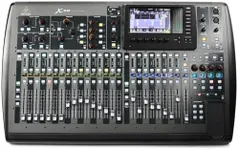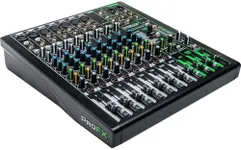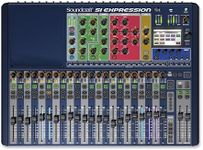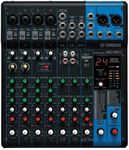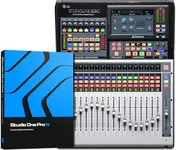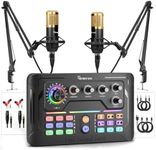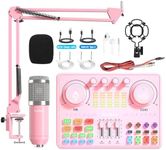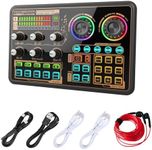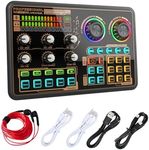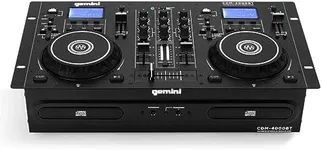Buying Guide for the Best Sound Mixers
Choosing the right sound mixer can significantly impact the quality of your audio production, whether you're working on music, podcasts, live events, or film. A sound mixer, also known as an audio mixer or mixing console, allows you to combine, process, and adjust multiple audio signals. To find the best fit for your needs, it's essential to understand the key specifications and how they align with your specific requirements. Here are the main specs to consider when selecting a sound mixer.Number of ChannelsThe number of channels on a sound mixer determines how many audio sources you can connect and control simultaneously. This is important because it dictates the mixer's capacity to handle multiple inputs like microphones, instruments, and other audio devices. Mixers with fewer channels (4-8) are suitable for small setups like solo performances or podcasts. Mid-range mixers (8-16 channels) are ideal for small bands or more complex podcast setups. Larger mixers (16+ channels) are necessary for full bands, live events, or professional studio recordings. Choose a mixer with enough channels to accommodate your current and potential future needs.
Analog vs. DigitalSound mixers come in two main types: analog and digital. Analog mixers are typically easier to use and more affordable, making them a good choice for beginners or those who prefer a straightforward, hands-on approach. Digital mixers offer more advanced features like built-in effects, presets, and the ability to save and recall settings, which can be beneficial for more complex productions or live sound environments. If you need flexibility, advanced processing, and the ability to integrate with other digital equipment, a digital mixer might be the better choice. For simpler setups or if you prefer tactile controls, an analog mixer could be more suitable.
Built-in EffectsMany sound mixers come with built-in effects such as reverb, delay, and equalization. These effects can enhance your audio production by adding depth and character to the sound. Built-in effects are particularly useful for live performances, where you might not have the time or resources to use external effects processors. If you plan to use your mixer for live events or want to simplify your setup, look for a mixer with a variety of built-in effects. However, if you already have external effects units or prefer to use software for processing, this feature might be less critical.
Connectivity OptionsThe connectivity options on a sound mixer determine how you can integrate it with other equipment. Common connections include XLR and 1/4-inch inputs for microphones and instruments, USB or FireWire for connecting to computers, and RCA or 1/8-inch jacks for consumer audio devices. Some mixers also offer Bluetooth connectivity for wireless streaming. Ensure the mixer you choose has the appropriate inputs and outputs for your current gear and any future additions. For example, if you plan to record directly to a computer, a mixer with USB or FireWire connectivity would be essential.
PortabilityPortability is an important consideration if you need to transport your mixer frequently, such as for live gigs or mobile recording sessions. Portable mixers are typically smaller, lighter, and may have fewer channels and features compared to larger, more stationary models. If you need a mixer that you can easily carry and set up in different locations, look for a compact and lightweight model. However, if your mixer will primarily stay in a studio or fixed location, portability may be less of a concern, and you can opt for a larger model with more features.
User InterfaceThe user interface of a sound mixer affects how easily you can operate it. A well-designed interface with clearly labeled controls and an intuitive layout can make a significant difference, especially during live performances or complex recording sessions. Analog mixers typically have a straightforward, hands-on interface with physical knobs and faders, which some users find more intuitive. Digital mixers may have more complex interfaces with touchscreens and menus, but they also offer more advanced features and customization options. Consider your comfort level with technology and your specific workflow needs when evaluating the user interface of a mixer.
